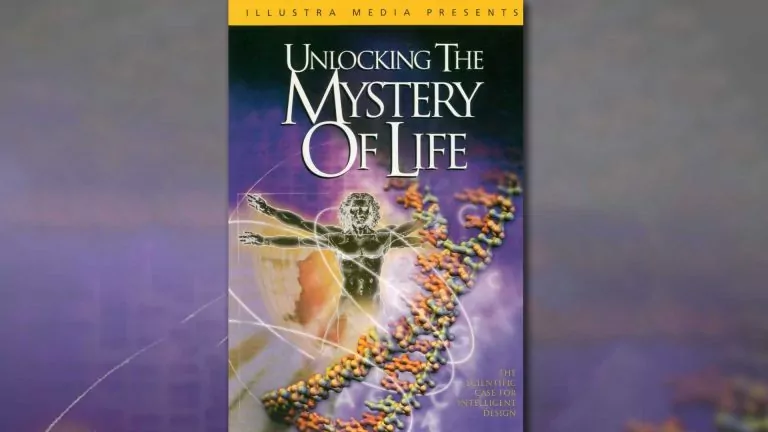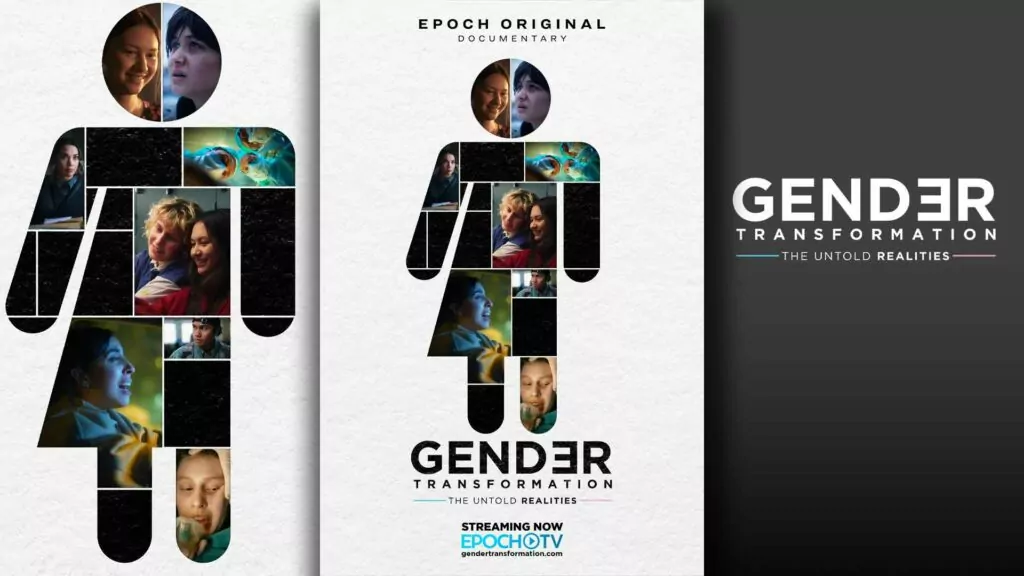Documentary
2003 / 67 minutes
Rating 8/10
This documentary is a couple of decades old now, and it’s more important than ever. When it was released, it had cutting-edge computer graphics unveiling the inner workings of the cell, and it told the story of the origin of life research current to that time. Today, it also serves as a history of the early days of the Intelligent Design (ID) movement, highlighting key figures in it like Phillip E. Johnson, Stephen C. Meyer, Jonathan Wells, William Dembski, Michael Behe, and Dean Kenyon.
Kenyon had previously written a textbook in support of evolution, and Behe had also begun his career as an evolutionist before reassessing after he read Michael Denton’s Evolution: A Theory in Crisis. As he describes it, reading this book made him feel like he’d been cheated; he’d had years of scientific education, was on faculty at Lehigh University, and he’d never once heard of the many problems with evolutionary theory! We get to come along as Behe and Kenyon explain how their eyes were opened.
We also get presented key ID arguments like Irreducible Complexity, which proposes that some biological machines need all their pieces to work, and could never have been formed by evolution’s step-by-step process. This is an issue being as hotly debated today as it was back then.
Other highlights include a look at the bacterial flagellum, which is effectively an outboard motor on a bacteria, propelling it as much as 100,000 rotations a minute. This is a marvel of engineering, evidencing the brilliant Designer behind it.
And we’re shown how biological machines are needed to assemble biological machines, which make the question of how they could have first formed one that evolution seems incapable of answering. It’s a chicken and egg problem: which came first, the Machine A, needed to assemble Machine B? Or was it Machine C, which was needed to assemble Machine A?
Cautions
The ID Movement looks at the origins debate from a philosophical and scientific, but not religious perspective. They argue that evidence outside the Bible makes it clear there is a Designer. On this point, the apostle Paul, writing in Romans 1:20, agrees. But the weakness with ID is that it doesn’t give the glory that is His due specifically to the God of the Bible. ID has a “big tent” approach which includes other religions, and both those who believe in a young Earth and those who believe it is more than 4 billion years old. However, this documentary doesn’t touch on old ages.
Conclusion
While the computer graphics aren’t as cutting edge, they are still amazing. We get a closeup look at the operation of micro machines we never knew about, but which are in our own cells! This is a must-see for high school science classes, and it could make for fascinating family viewing too with teens and parents.
Speaking of the classroom, Illustra Media has packaged this exact same material, in a slightly different order, in Where Does the Evidence Lead? (2003). There it comes in 6 distinct chapters, all around ten minutes long, making them easy to present one or two at a time in high school or university classrooms. Illustra Media has made that repackaged version available for free online, and you can watch it below.
Part 1 – Life: the Big Question (10 min)
We begin with Darwin, his trip to the Galapagos Islands, and how he developed his theory of Natural Selection.
Part 2 – What Darwin didn’t know (8 min)
We’re introduced to Michael Behe, who explains why he used to be an evolutionist: no one had ever previously presented to him any problems with evolutionary theory. But the more he learned about the cell, and how complex the simplest block of life is, the clearer it became that chance processes couldn’t explain it. One example: the bacterial flagellum motor, which has been called “the most efficient machine in the universe.”
Part 3 – Molecules and mousetraps (12 min)
In Part 3 we’re introduced to the concept of “Irreducible Complexity” which proposes that in biological systems there are some machines that could never have come about by a step-by-step process – they would have had to come together all at once. That is a powerful challenge to evolutionary theory, which precisely proposes everything can come about by small incremental steps. Michael Behe illustrates this point using a mousetrap as an example.
In answer, evolutionists have proposed their own theory of “co-option”… which has its own problems.
Part 4 – How did life begin? (11 min)
How did life begin in the first place? Darwin had very little to say on the subject. In recent years scientists have experimented with trying to get some form of “chemical evolution” started by mixing various chemicals together. But it isn’t simply the chemicals that make life happen, but how the chemicals are arranged. Like letters in a sentence, we don’t need just the right sort, but we also need them in the right order. The math here – the odds against even a single amino acid forming by chance – is fascinating!
Part 5 – Language of life (13 min)
Dean Kenyon wrote a best-selling textbook on the evolutionary origins of life. But then one of his students challenged him to explain how the first proteins could have been formed. Kenyon had originally proposed that they would self-assemble, but proteins are formed by other micro-machines, using instructions – there was no self-assembling. So Kenyon started to ask, what was the source of the instructions?
In this part, we also get to look into the cell to see how that information is put to use.
Part 6 – The Design Inference (14 min)
Design has been ruled out at the start – not by the evidence, but by mainstream Science’s anti-Supernatural bias – as a legitimate answer to origins questions.
But Man is fully capable of spotting and recognizing design. It is a legitimate field of scientific inquiry.












